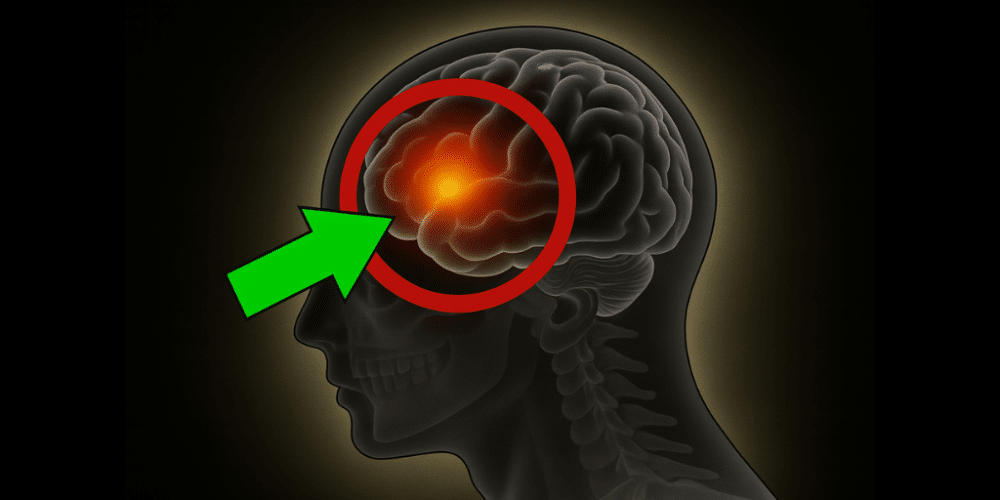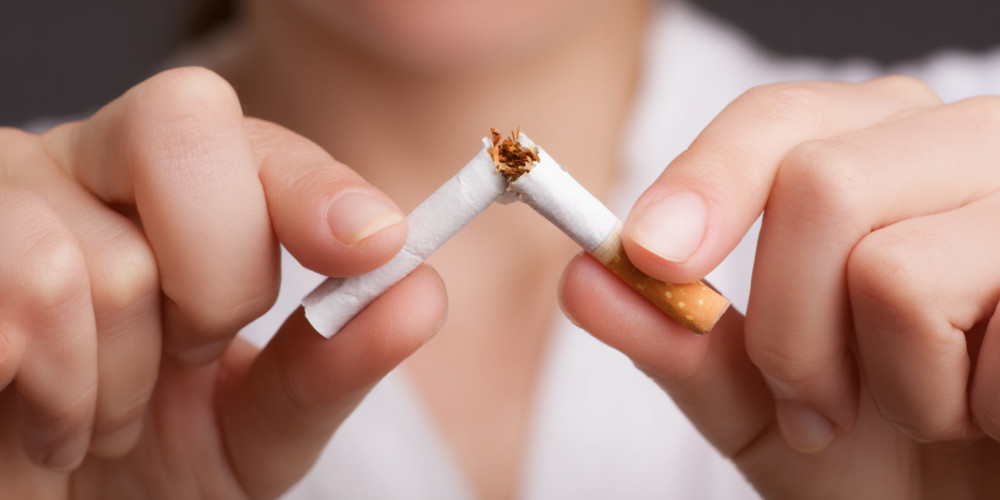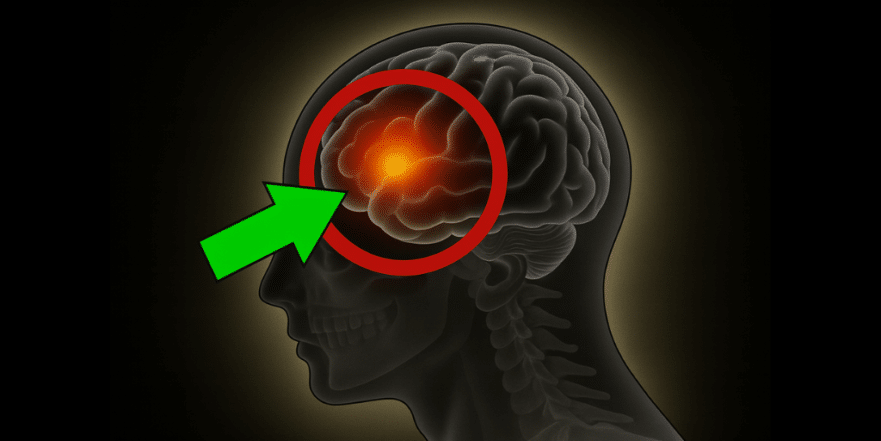
Could you be giving yourself a stroke without even realizing it, even if you feel perfectly fine? Many people believe that a stroke, or cerebrovascular accident (CVA), always comes with warning signs or only affects those with a family history. But the latest medical guidelines tell a very different story.
A stroke is the fifth leading cause of death in the world, and the most tragic part is that eight out of ten cases could have been prevented by changing habits we practice every day without a second thought. I’ve also discovered a silent factor that fuels many of these habits: our emotional state. Stress, loneliness, and anxiety are powerful drivers of the seemingly harmless decisions we make daily.
In this article, we’ll explore the 12 primary habits that, if you recognize and change them in time, can protect your brain. As a bonus, I’ll explain three additional factors that make a significant difference. Everything is based on science, and most importantly, you’ll know exactly what to do in each case. (Based on the expertise of Dr. Alberto Sanagustín)
Key Takeaways
- Lifestyle choices, not just genetics, are the primary drivers of stroke risk. Eight out of ten strokes are preventable.
- Emotional well-being, including stress and loneliness, significantly impacts the physical habits that can lead to a stroke.
- Silent conditions like high blood pressure, high cholesterol, and undiagnosed sleep apnea are major, often overlooked, contributors.
- Simple, daily changes in diet, activity, and self-monitoring can drastically reduce your risk, and it’s never too late to start.
12. Living a Sedentary Lifestyle

How long do you have to be sitting for it to become dangerous for your brain’s circulation? You might think, “Well, I work in an office, it’s normal to be seated.” It is normal, but it turns out that after just four consecutive hours of sitting, something begins to change in your body. Imagine your blood is like the water in a river. When you move, it flows quickly and cleanly. But when you sit for hours, that river turns into a swamp. Your blood becomes more viscous, thicker, and your heart has to work harder to pump it to your brain. Have you ever noticed swollen legs or a feeling of heaviness after sitting for a long time?
That’s just what you see on the outside. Inside, your blood pressure is slowly and silently rising. Current medical guidelines state that sitting for more than 8 hours a day without active breaks significantly increases your risk of circulatory problems, especially in the brain. The good news? Just getting up for two or three minutes every hour can make a huge difference.
11. Poor Sleep and Undiagnosed Sleep Apnea

What signs could indicate you have sleep apnea and don’t know it? This habit is about sleeping poorly or too little, especially if you have an undiagnosed condition where you stop breathing while you sleep. Perhaps your partner has told you that you snore like a freight train or, worse, that you seem to stop breathing and it scares them. When you snore loudly and pause your breathing, your brain is deprived of sufficient oxygen, sometimes for hours. It’s as if someone puts a plastic bag over your head for a few minutes, takes it off, and then does it again. It’s distressing, but that’s what it’s like.
Your heart reacts to the lack of oxygen by beating harder and faster, your blood pressure skyrockets, and your cerebral arteries suffer. Research is clear: sleeping less than 6 hours or having untreated sleep apnea can triple your risk of a stroke. If you wake up tired despite sleeping 8 hours, have morning headaches, or fall asleep watching TV in the afternoon, your body is asking for help. A simple sleep study can provide answers.
10. Consuming a Diet Rich in Hidden Salt, Sugar, and Processed Foods

Did you know you could be consuming triple the recommended amount of salt without realizing it? A single can of “light” supermarket soup can contain more than 50% of the total salt you should have in an entire day. Salt acts like a magnet for water. When there’s too much salt in your blood, it retains more fluid. It’s like inflating a balloon inside your delicate cerebral arteries.
And here’s where stress comes in again. When we’re overwhelmed, tired, or sad, we often reach for the easy option: pre-packaged, ready-to-heat meals. I get it, we’ve all been there. But here’s a simple trick: read the labels. If a product has more than five ingredients you can’t pronounce, it’s better to leave it on the shelf. You don’t need to become a professional chef. Steamed vegetables or a grilled fish with spices are simple meals your brain will thank you for.
9. Not Drinking Enough Water

Think about it: you’ve just gone 8 hours without a single drop of water. Your body has continued to function, sweat, and breathe. Where do you think it got the water it needed? It pulled it from your blood. This is like leaving a soup on the stove; it thickens over time. Have you ever noticed the color of your urine when you wake up? If it’s a dark yellow, your body is screaming for water. Thick blood is like trying to suck honey through a straw. Your heart has to make an enormous effort, and the risk of a clot forming increases. The solution is ridiculously simple: drink one or two glasses of water right after you wake up. It’s a small gesture that gives your circulation a powerful kick-start for the day.
8. Abusing Trans Fats and Unhealthy Refined Oils

What oil do you use for cooking? If your answer is “the usual vegetable oil that comes in a big bottle and is on sale,” you need to hear this. Not all oils are created equal. Some, like extra virgin olive oil or cold-pressed avocado oil, have proven benefits for your heart and brain. But others, especially refined and ultra-processed vegetable oils like corn, soy, and industrial canola, can become a problem when used in excess, reheated, or when they displace healthy fats in your diet.
Imagine your arteries are a network of crystal-clear rivers. If you add oxidized, pro-inflammatory, and reheated fats, it’s like dumping used motor oil into a mountain stream. Over time, this will not only cloud the water but also narrow, harden, and inflame the riverbed. An excess of omega-6 fatty acids relative to omega-3s, common with a diet high in industrial oils, generates inflammation and increases cardiovascular and cerebral risk.
7. Smoking or Using Tobacco Products

Did you know that electronic cigarettes, which many consider a safe alternative, also damage your cerebral arteries? If you smoke, you already know it’s bad for you. What you might not know is exactly what happens to your brain with every cigarette. Imagine your arteries are the pipes in your house. Tobacco is like pouring glue into those pipes day after day. It not only narrows them but also makes your blood stickier and more prone to forming clots. Studies confirm that any amount of tobacco, including e-cigarettes, increases stroke risk. There is no safe level. But here’s the fantastic news: your body is incredibly forgiving. Within three to six months of quitting, your stroke risk drops significantly. It’s as if your arteries can finally breathe a sigh of relief.
6. Excessive Alcohol Consumption

Have you ever heard that a glass of red wine a day is good for your heart? It’s time to dismantle this widespread myth. When we talk specifically about stroke, recent research is clear: the risks of alcohol outweigh any supposed benefits. Alcohol does two very dangerous things to your brain. First, it raises your blood pressure. Second, it can cause arrhythmias—irregular heartbeats that increase the risk of clot formation. How much is excessive? More than two standard drinks a day for men and more than one for women. Have you ever noticed your heart racing the day after a night of drinking? That’s your body telling you your blood pressure has spiked. Worryingly, alcohol increases the risk of both ischemic strokes (blockages) and hemorrhagic strokes (bleeds).
5. Not Monitoring Your Blood Pressure

Why do you think hypertension is known as the “silent killer”? Because it can be slowly killing you for years while you feel perfectly fine, without a single symptom. A staggering 45% of adults have high blood pressure without knowing it. When was the last time you truly checked your blood pressure? The new guidelines are stricter than before. If your blood pressure is consistently above 130/80, you are already at risk. The old standard was 140/90, but we now know the damage starts earlier. If your doctor has prescribed medication for your blood pressure, take it religiously, especially if you feel fine. Hypertension doesn’t give warnings, but it continues to do damage in silence.

